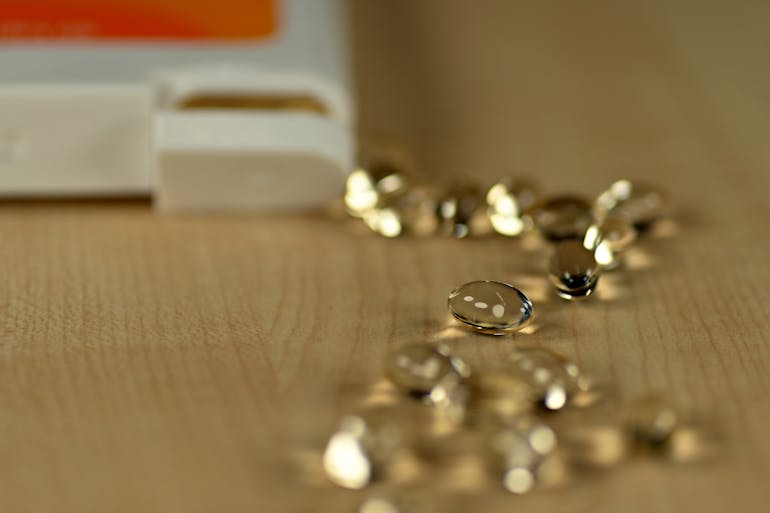The science behind using Vitamin D for Immunity
Reviewed and fact-checked by Giulia Guerrini, Superintendent Pharmacist. Read our editorial policy to see how we create informative, accurate content.
Vitamin D, also known as ergocalciferol and cholecalciferol, is a well-known vitamin which is considered as one of the most essential vitamins for us.
Vitamin D, unlike other vitamins, functions like a hormone, and there are receptors for it on every single cell in your body.
It is produced from cholesterol when your skin is exposed to sunlight and It's also found in certain foods such as fatty fish and fortified dairy products, though it's very difficult to get enough from diet alone.
The recommended daily intake (RDI) is usually around 400–800 IU, but many studies show that you should get even more than that, especially in countries, such as the UK, where there are not as many sunny days.
Vitamin D has exceptionally remarkable effects on the health of the human body. Its precursor is naturally available in the skin therefore its synthesis is not a challenge. Apart from the typical benefits of vitamin D on the absorption of calcium and strengthening of bones, it has an equally appreciative impact on the strength of the immune system. Studies have been conducted to conclude the behavior of Vitamin D towards boosting of the immune system.
1. Autocrine or paracrine behaviour – Cell production
In order to maintain tolerance and develop immunity, Vitamin D promotes cell proliferation and cell differentiation, meaning we can fight off illnesses better. Those with under-developed immune systems have the tendency to respond well to Vitamin D. Bear with us here… Vitamin D acts follow autocrine or paracrine signaling. This means that Vitamin D can introduce the adequate amount of cells to fight an invasion. This effect varies from person to person but helps greatly when fighting off cells that cause infections.
2. Protective immunity
It’s beyond amazing to know how Vitamin D has been used through natural resources instead of prescribing it as a medicine. Several cross sectional studies claim that Vitamin D contributes in building protective immunity. In several bacterial conditions like bacterial vaginosis, tuberculosis and upper respiratory tract infections the patients are suggested to expose themselves to sunlight. Vitamin D from the sunlight develops immunity and helps in fighting against the infection. In another cross sectional study, it was revealed that the rate of occurrence of infections is higher in winters as compared to summers. This shows clear discrimination between the seasonal influences.
3. Promotion of antimicrobial activity
Vitamin D initiates a series of events in which peptides (the building blocks for protein in our bodies) are produced which have antimicrobial activity, meaning they fight bacteria. These peptides bind with ingested bacteria where they disrupt the bacterial walls thus killing them.
4. Regulation of immunologic cells
The immune system is a collection of specific cells which take protective action whenever there is an invasion so that our body is protected against the intruder. Vitamin D has a huge influence over each cell.
It proves to be of essential help to boost the immune system and keep us protected. It’s necessary to keep the intake of Vitamin D at a healthy level. Through diet, sunlight and supplements it can be maintained. Analysis reveals that it is healthy to take Vitamin D daily or weekly as compared to monthly doses. 300-1000IU is the standard dose of Vitamin D.
You can head here to see our range of Vitamin D products.
References:


